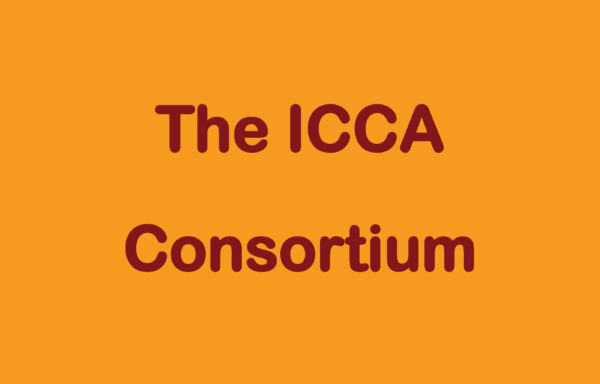First published on 08/14/2025, and last updated on 08/27/2025
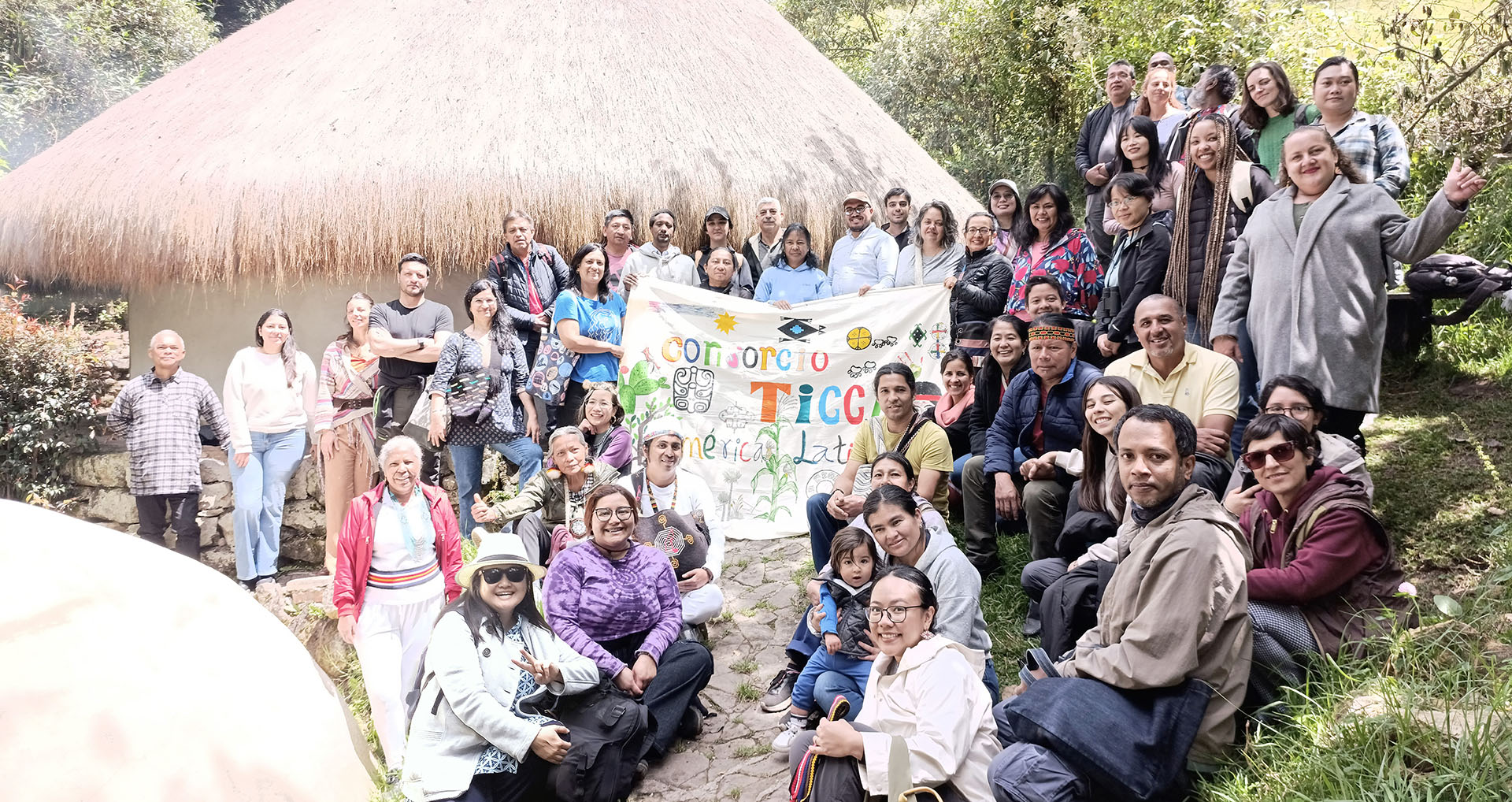

ICCA Consortium Annual Report 2024
Strengthening territories of life, collective journeys of self-determination and solidarity
In 2024, the ICCA Consortium initiated the first year of its 2024–2028 Strategic Plan, grounding its actions in the self-determined priorities of Indigenous Peoples and Local Communities. This year marked a renewed commitment to regionalization, solidarity, and transformation, shaped by the realities of territories of life and guided by the leadership of the guardians and custodians of these territories.
Across regions, communities engaged in processes of self-strengthening, revitalizing traditional governance, advancing well-being-based local economies, and defending their lands and waters from threats. Regional assemblies served as vital spaces for collaboration and political articulation, while rapid response and solidarity mechanisms provided urgent and flexible support.
The year also brought a meaningful transition. Key leadership roles evolved in both the Secretariat and the Council, and several long-serving individuals concluded their formal roles after years of dedicated service. New team members brought fresh energy and skills, including expertise in policy, event coordination, and finance, helping the Consortium grow while remaining grounded in its values.
Cover image: ICCA Consortium, 2024
The designation of geographical entities in this work does not imply opinions concerning the legal status of any country, territory, or area, nor their authorities or boundaries.
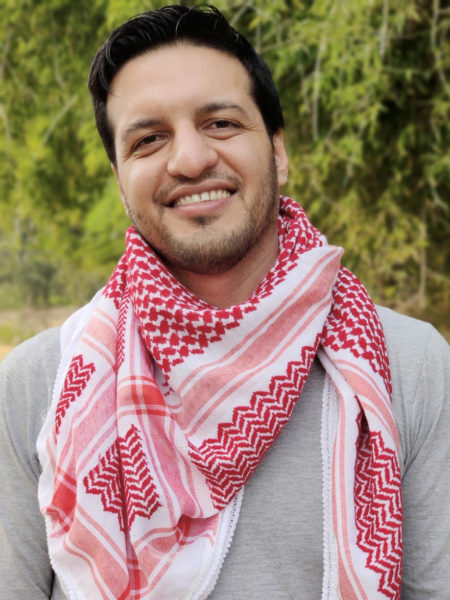
Message from the Global Coordinator
For the ICCA Consortium, 2024 marked a transformative chapter in its history. As we initiated the first year of our 2024–2028 Strategic Plan, our membership deepened its commitment to the self-determined priorities of Indigenous Peoples and Local Communities, who are the guardians and custodians of territories of life across continents and cultures.
We went through transitions in leadership, team composition, and governance; yet we emerged stronger and more interconnected. The spirit of collective care and cultural affirmation ran through every gathering, campaign, and exchange.
This report tells the story of a movement in motion. From urgent solidarity responses to regional assemblies that connected hundreds of community leaders, and from member-led advocacy at CBD COP16 to internal strengthening of our secretariat and governance systems, 2024 was a year of both reflection and implementation.
With humility and determination, we offer this account of our shared efforts to protect and strengthen territories of life. Thanks to all of you, members, honorary members, regional coordinators, teams, allies, and partners—who walked this journey with us. We look forward to continuing this collective journey in 2025 and beyond.
Ali Razmkhah

2024 in numbers
Membership

19
new member
organizations accepted
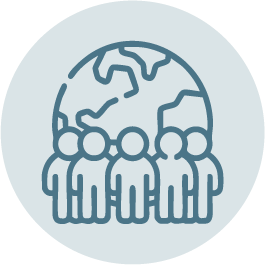
244
member
organizations in 75 countries

484
honorary
members

12
regional
coordination teams
Actions
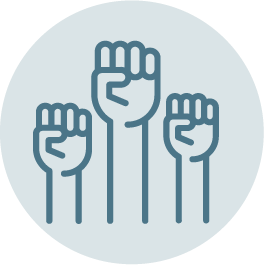
3
major solidarity
actions
supported in India, Chile, and the Democratic Republic of Congo (DRC)

7
subgrants
disbursed through solidarity mechanisms (USD 150,000 total)
Publications

6
newsletters
published in 3 languages

2
strategic publications
and knowledge tools released
Events
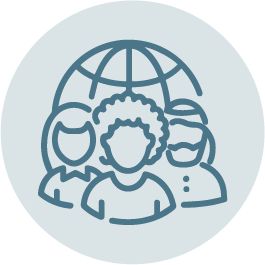
50+
events
supported internationally and regionally

35
side events
and several briefings at CBD COP16
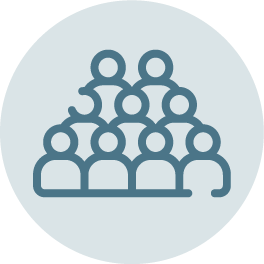
1
in-person gathering
of the ICCA Consortium bodies

Strategic Plan (2024–2028): a cycle of support around self-determination
Approved in late 2023 and launched in 2024, our Strategic Plan is built around four interconnected goals that reflect our core mission and values. Each goal supports and strengthens the others in a dynamic cycle of mutual reinforcement, with self-determination at the heart.
Goal 1: Self-determination
Diverse forms of solidarity and support uphold the self-determined priorities and self-strengthening processes of Indigenous Peoples and Local Communities for the well-being of territories of life
In 2024, this support took many forms: facilitating community-driven processes, holding regional and national assemblies, enabling knowledge exchanges, mobilizing rapid response solidarity, and providing flexible funding rooted in trust. Across all regions, the work was guided by the lived priorities of communities themselves, not by external agendas.
Performance summary
7
solidarity grants
mobilized for urgent actions
6
regional or subregional assemblies
held across four mega-regions
4
national networks
led community-based planning or self-strengthening processes (e.g., Madagascar, Chile, Colombia, and the Philippines)
4
inter-community learning exchanges
facilitated by regional hubs (e.g., agrobiodiversity, marine conservation, women’s leadership, pastoralism)
12
regional coordination teams
were supported in implementing actions
100+
community leaders and representatives
were directly involved in inter-community exchanges
Community assemblies build strength. Trust-based funding is vital. Regional coordination is not an add-on; it is an essential infrastructure for solidarity and self-determination. When regional teams are well-resourced, the results are transformative. The link between assemblies, solidarity, and political clarity was visible across all regions.
Goal 2: Recognition and rights
Appropriate recognition of territories of life and respect, protection, and fulfilment of their custodians’ rights
In 2024, we supported the expansion of community-led documentation, deepened presence in policy processes, and amplified the voices of guardian and custodian communities of territories of life. Such efforts contributed to strengthening the foundation for recognition grounded in community-defined values, governance systems, and worldviews.
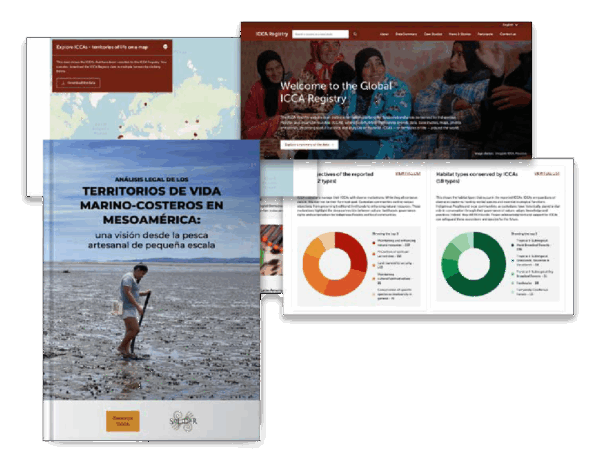
Evidence and documentation for recognition
In 2024, across all regions, communities led research and documentation processes to secure appropriate recognition and defend their rights. These efforts were designed to reflect Indigenous governance systems and local epistemologies, thereby ensuring that their voices were heard and their perspectives were acknowledged, respected, and valued.
Legal and policy recognition
In 2024, we contributed to significant progress in national legal frameworks and policy advocacy with advancements observed across a range of countries, including Chile, Colombia, Brazil, India, Cameroon, Gabon, CAR, DRC, Senegal, and the Philippines.
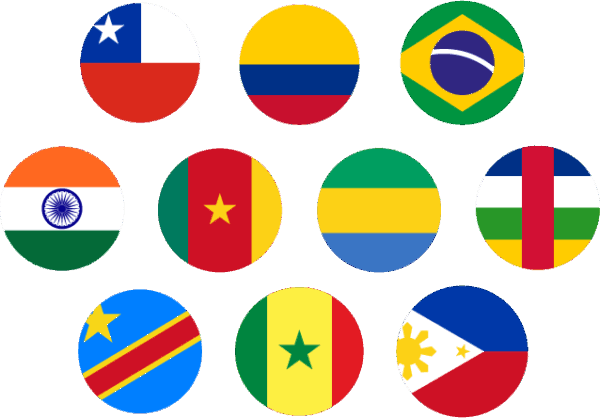
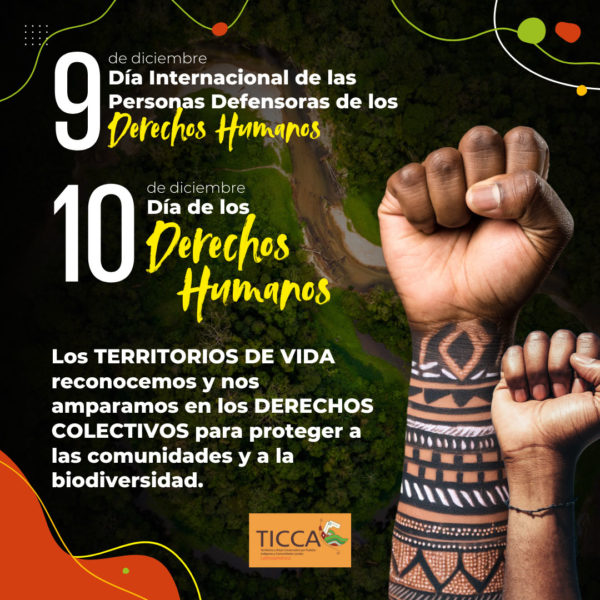
Strategic communications and narrative change
In 2024, our communications and media efforts focused on amplifying community-led narratives rooted in oral traditions, resistance, and cultural affirmation.
Language justice and access
In 2024, a key enabler of the second goal was our commitment to linguistic equity. The Consortium’s linguistic team worked across all areas of action to support access, accuracy, and autonomy. Language justice ensured that custodians could speak for themselves, be understood, and shape collective strategies across borders.
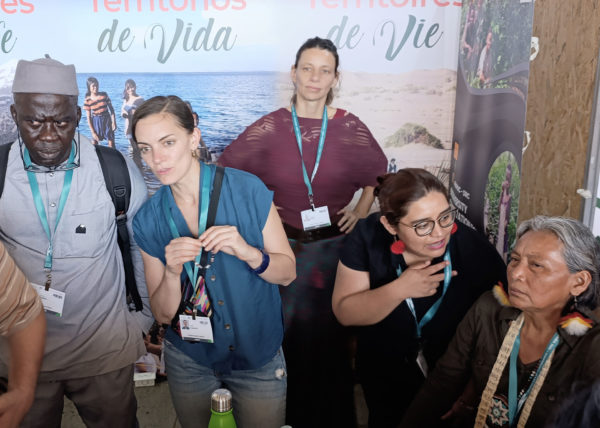
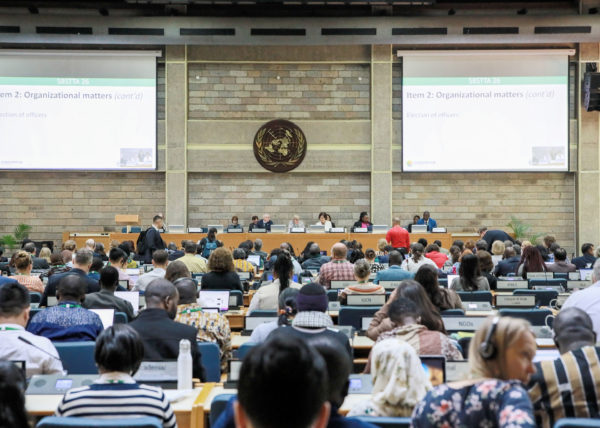
Participation in international policy processes
In 2024, ICCA Consortium accompanied Indigenous Peoples and Local Communities in policy arenas, ensuring that guardian and custodian communities and their territories of life were actively represented in biodiversity governance and beyond.
In 2024, while significant gains were made, recognition remains uneven and contested. The legal advancements in Chile and Senegal, the growing inclusion of territories of life in CBD frameworks, and the adoption of the SB8j mark significant progress. Yet, these milestones are not endpoints; they are mandates for deeper, more sustained engagement.
Despite barriers, the past year reaffirmed that consistent participation and coordinated policy work can yield substantial results. Community-led evidence building, multilingual advocacy, and strategic solidarity are reshaping what global recognition can mean—when it is rooted in governance, culture, and autonomy.
Securing recognition and rights is essential, but not enough. True transformation requires systemic change in how external actors engage with Indigenous Peoples and Local Communities. In 2024, the ICCA Consortium focused on catalyzing such change, confronting extractive models, challenging tokenism, and co-developing rights-based standards and ethical partnerships.
Our advocacy targeted the deeper structures of conservation, development, and philanthropy, while our internal work modelled alternatives through solidarity-based collaborations and value-aligned fundraising. This dual approach is rooted in one principle: lasting change happens when the leadership, knowledge, and priorities of custodian communities of territories of life themselves shape systems and relationships.
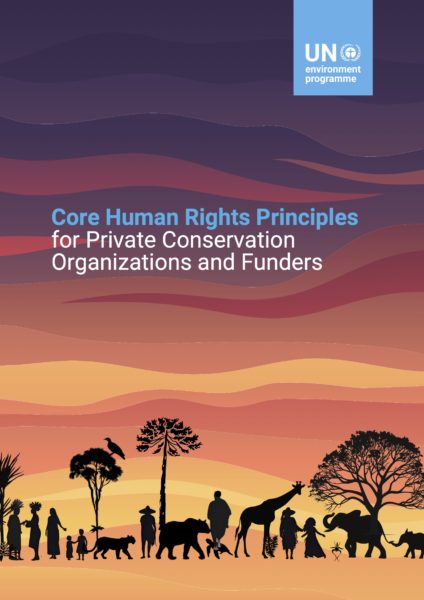
Core Human Rights Principles for Private Conservation Organizations and Funders
Together with the OHCHR, UNEP, and other partners, we made substantive contributions to the development and promotion of the Core Human Rights Principles for Private Conservation Organizations and Funders.
Strategic alliances for systemic change
Throughout 2024, ICCA Consortium had an active role in global forums. Preparatory sessions, regional dialogues, and strategic coordination with allied organizations backed these engagements.
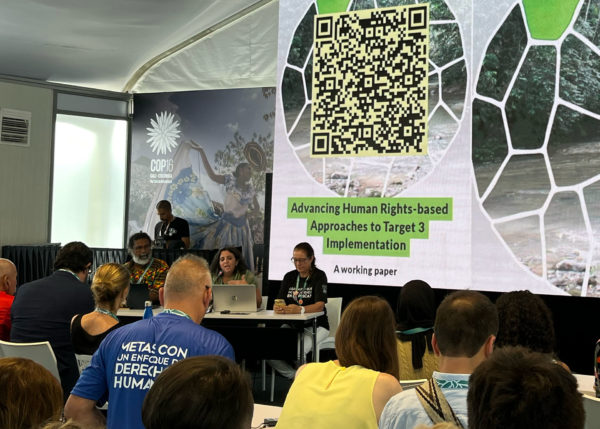
Goal 3: Influence
External actors and their practices are influenced to provide appropriate support for the self-determined priorities of territories of life and their custodians
In 2024, our influence was measured not in visibility, but in transformation. Through strategic alliances, value-aligned partnerships, and the promotion of the Core Human Rights Principles for Private Conservation Organizations and Funders, we helped shift how external actors engage with territories of life. Direct, flexible, trust-based funding models gained ground, and our advocacy confronted tokenism with community-led strategies. While some spaces remain extractive or symbolic, our approach emphasized systemic change, where custodians’ leadership, knowledge, and priorities shape relationships and practices.
Goal 4: Our organization
Strengthening the structure that supports the vision
In 2024, the first year of our new strategic plan, we laid the foundation for a healthier and more coherent internal institutional structure. We deepened internal collaboration, clarified roles and governance practices, and embraced change as a necessary pathway to resilience.
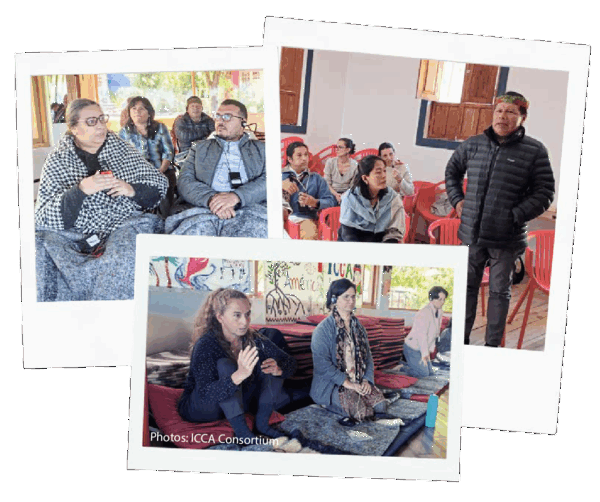
Governance evolution and Council engagement
The Council, the Council of Elders, and the Executive Committee (ExCo) changed composition and the nature and extent of their engagement. Although formal meetings often lacked a quorum, informal modes of participation flourished through monthly joint meetings between the Council and Secretariat, written submissions, and working groups. Council members increasingly took operational and representational roles, particularly in the organizational change process, strategic discussions with allies, and advocacy work.
Strengthening of the Secretariat and internal systems
In the Secretariat, consultants with international scopes of work were recruited in 2024, including new coordinators for policy, defending territories of life, finance, internal support related to human resources and operations, and event logistics. These changes helped build a more structured, regionally diverse, and supportive secretariat.
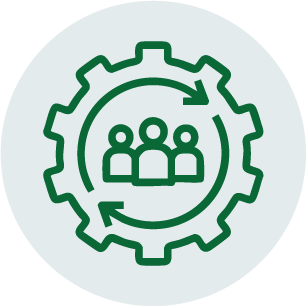
Regionalization and membership engagement
- Twelve regional coordination teams actively led efforts across Latin America, Africa, and Asia, coordinating direct sub-grants and regional work plans.
- A three-day in-person gathering in Colombia brought together the Council, Secretariat, and Council of Elders for reflection and alignment on strategic goals. Nineteen new member organizations were welcomed in the first intake of 2024. The second round was postponed to 2025 due to capacity demands from the in-person meeting and COP16. Later applications were deferred to the first round of 2025.
- Ongoing improvements in membership engagement platforms and support for regional assemblies and focal points.
- Over 230 participants—including representatives from more than eighty member organizations, honorary members, and members of the secretariat—took part in the 20th General Assembly.

Wellbeing and internal culture
In 2024, we placed greater emphasis on shared leadership, decentralized roles, and flexible working styles across the organization. Early efforts focused on clarifying responsibilities among the Council, Secretariat, and regional teams, laying the groundwork for improved coordination and accountability. Dedicated feedback spaces, such as retreats and inter-regional calls, were created to openly share frustrations, needs, and aspirations, contributing to the emergence of a more compassionate and values-aligned internal culture.

We are still in the early stages of developing an internal institutional structure that aligns with our external vision, but the direction is clear. An adaptive, decentralized, and deeply relational organization is not only possible, it is already emerging.
“Organizational health is not a background concern—it is what allows us to serve territories of life with integrity and coherence.”
— Internal Support Team

Organizational change process: laying the groundwork for structural renewal
In 2024, ICCA Consortium marked the beginning of a carefully facilitated organizational change process, essential for aligning our internal institutional structures with the principles of decentralization, collective leadership, and sustainability.
Focus areas of change
The change process concentrated on five interconnected dimensions:
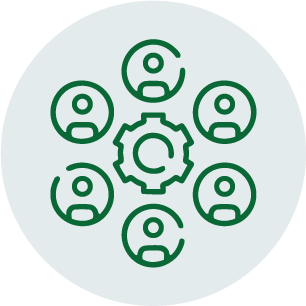
Governance roles and structures: clarifying the functions, composition, and relationships between the Council, ExCo, Secretariat, and Council of Elders.

Internal coordination and communication: improving inter-team functionality, meeting rhythms, and role clarity.
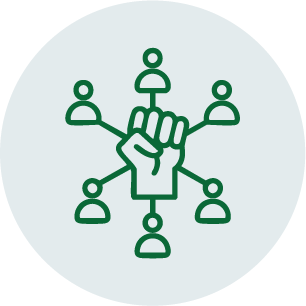
Regionalization: strengthening regional coordination teams, sub-granting models, and regional focal points.

Human resources: ensuring well-being, clear responsibilities, and supportive contracting systems.

Partnership and fundraising practices: developing principles and guidelines to align resource mobilization with our values.
“This is about building the internal structure that matches our vision—not just in form, but in function, values, and relationships.”
— Organizational Change Committee

Financial health and transparency
Income and expenditure overview
In 2024, the Consortium maintained financial stability through a diversified funding base, supporting global and regional initiatives.
Expenditure highlights (USD)
801,800
for program implementation (core activities, regional coordination, support to members, events, and consultancy).
544,325
for Secretariat fees, contracts, and human resources.
128,401
for travel, accommodation, interpretation, and convening (including the General Assembly and regional assemblies).
141,848
for communications, software, finance systems, and other core operations.
These numbers reflect our substantial investment in regionalization, multilingual coordination, and facilitation of international and local solidarity. Operational and support costs were kept lean, with a focus on enabling collective impact.
Major grants and donor partnerships
We strengthened relationships with longstanding funders and welcomed new support, including:
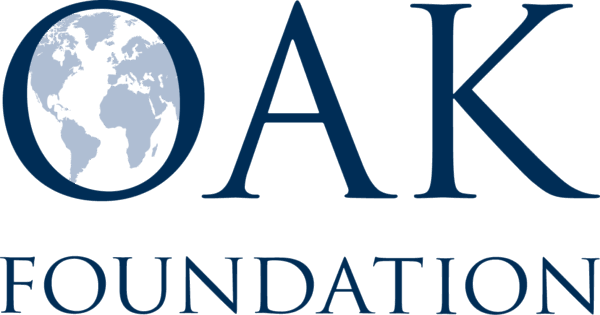
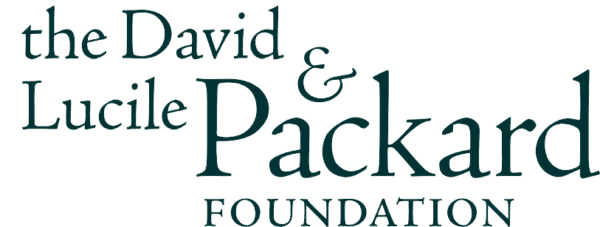

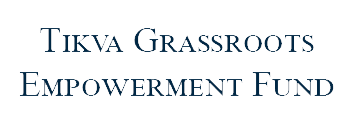
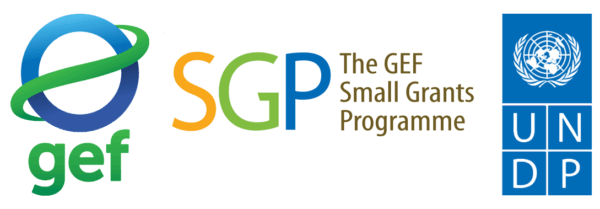
Renewed or ongoing support from Oak Foundation, Packard Foundation, Synchronicity Earth, Tikva Grassroots Empowerment Fund, and ICCA-GSI.

A new grant from the Hans Wilsdorf Foundation.

Continued support and collaboration with SwedBio, including co-funding for policy advocacy and communications work.
Additionally, ICCA Consortium engaged in strategic dialogues with philanthropic networks to advocate for flexible core support, direct funding for Indigenous Peoples and Local Communities, and accountability in large-scale conservation funding.
This evolving financial landscape is not just about sustainability; it’s about integrity. These funds are not just operational; they are instruments of solidarity and transformation, enabling the self-determined paths of communities we accompany.

What lies ahead
Carrying the fire forward
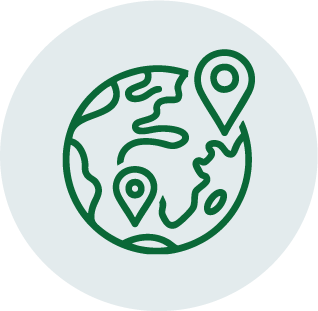
Regionalization
Deepen regionalization with more substantial support to regional teams and national networks, tailored sub-grant models, and inter-regional exchanges.
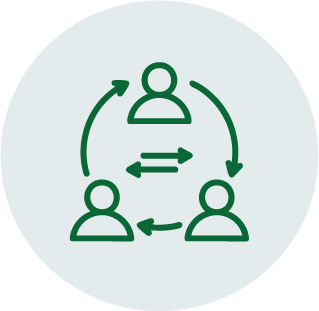
Organizational Change
Advance the organizational change process, including decision-making reforms, staff systems, council roles, and improved communication channels.
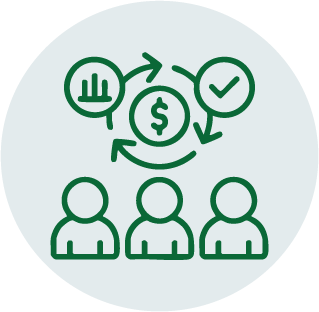
Funding
Secure multi-year, trust-based funding, expand direct community support, and clarify internal partnership protocols.
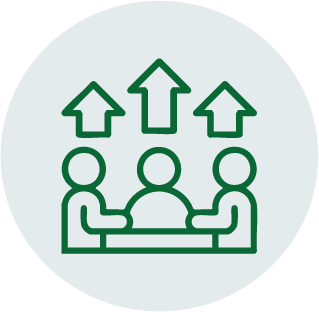
Leadership
Invest in capacity for youth and intergenerational leadership, particularly in documentation, advocacy, and territorial defense.
In 2025, we invite our members, partners, allies, and donors to walk with us, with more courage, coherence, and care. Together, we will continue strengthening territories of life and the leadership of their custodians, through stories, governance, resistance, healing, and joy.

Solidarity is not charity: it is shared struggle and shared responsibility.
